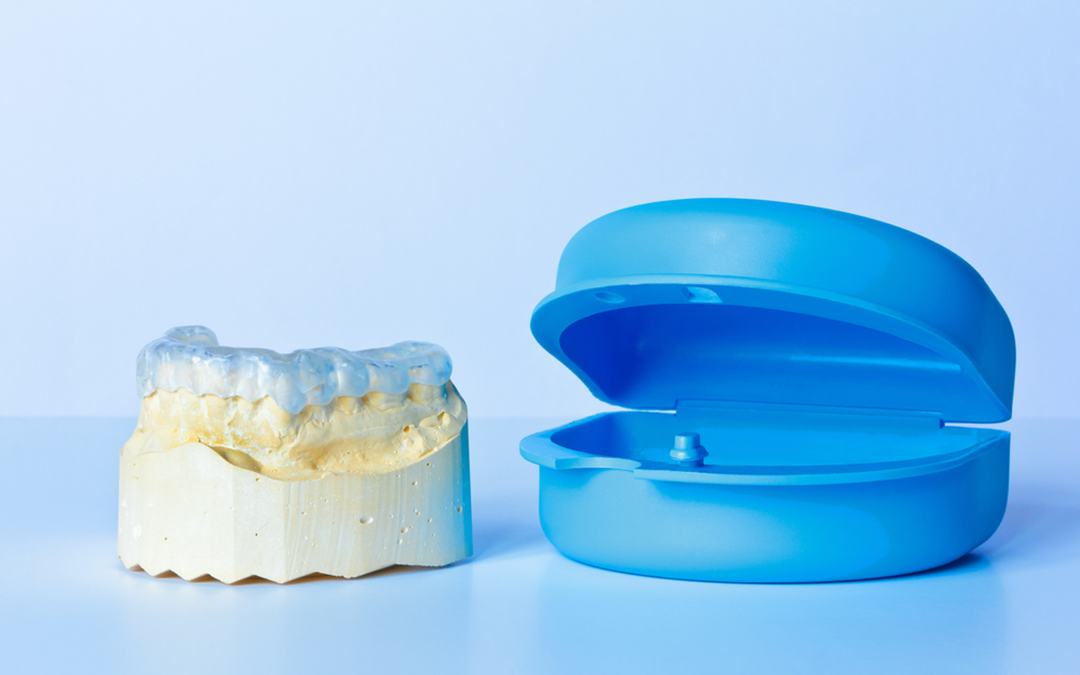Assuming all is well, you may only see your dentist in Lively three times a year — every six months at your regular checkup and once a year when you have your teeth professionally cleaned. Your dentist is particularly interested in the condition of your teeth on those three dates, to be sure. They also want your teeth to be as healthy and safe as possible — and for you to be as healthy as possible — 365 days of the year.
Dentists help ensure your health and the health of your teeth between your appointments and cleanings by providing advice about best oral hygiene practices and preventative treatment. They also offer specific products and services to keep you and your teeth healthy every day in ways that go far beyond brushing, flossing, cavities, and gum disease. One lesser-known example of how dentists try to ensure your health and the health of your teeth is by providing customized nightguards.
What is a nightguard?
Nightguards — or mouthguards — are dental devices made by a dentist near you to cover your teeth and gums as you sleep. Your dentist in Lively can prepare a mouthguard designed and shaped to fit your teeth precisely and to provide the exact protection you need depending on your circumstances. Keep in mind that nightguards near you are not the same thing as sports mouthguards, although the word mouthguard can refer to the same things.
Nightguards can protect your teeth from being damaged as you sleep
Many people have a harmful habit of clenching their jaw and grinding their teeth, often without knowing that they’re doing it. While it can happen during waking hours and overnight, the clenching and grinding as you sleep is called sleep bruxism. Sleep bruxism exposes your teeth to sustained pressure that can damage dental work — fillings, crowns, bridges — as well as grind away the enamel from your biting surfaces.
People with sleep bruxism often awaken with significant jaw pain, facial pain, tooth sensitivity, and headaches. Wearing a nightguard can ease these symptoms and prevent that damage by preventing your teeth from coming into contact with each other as you sleep.
A mouthguard provided by a dentist in Lively can also help address temporomandibular joint dysfunction symptoms, which have a lot in common with the symptoms of sleep bruxism. Being fit with a custom-made mouthguard is often sufficient to eliminate many painful symptoms of TMJ dysfunction.
Nightguards help you breathe easier and sleep better
Your jaw and tongue’s positions play an essential role in how well you breathe as you sleep and whether or not you snore. Among other factors, the improper placement of your tongue and jaw can contribute to a condition called sleep apnea, which is when someone stops breathing several times throughout the night. While sleep studies and CPAP devices are often necessary to address serious sleep apnea, sometimes an intervention as simple as a customized mouthguard is enough to put your jaw in the right position for you to breathe as you sleep.
Wearing a nightguard to place your jaw and tongue in the proper position as you sleep can also reduce or eliminate snoring. One recipe for better sleep — for you and your sleeping partner — is better breathing and less snoring. Wearing night guards in Lively can contribute to both.
Something to watch for
To get all the benefits of your night guard, keep it clean and pay close attention to its condition. If your bruxism is more severe than you or your dentist realized or you’ve not been taking care of your night guard properly, it may develop cracks or even show small holes. Those cracks and holes are signs that the protection a night guard can offer is being undermined. Don’t just throw the night guard away, but take it to your dentist in Lively to be replaced. Your dentist may be able to learn something about your health, sleeping and bruxism habits from the nightguard that they can turn to your benefit.

